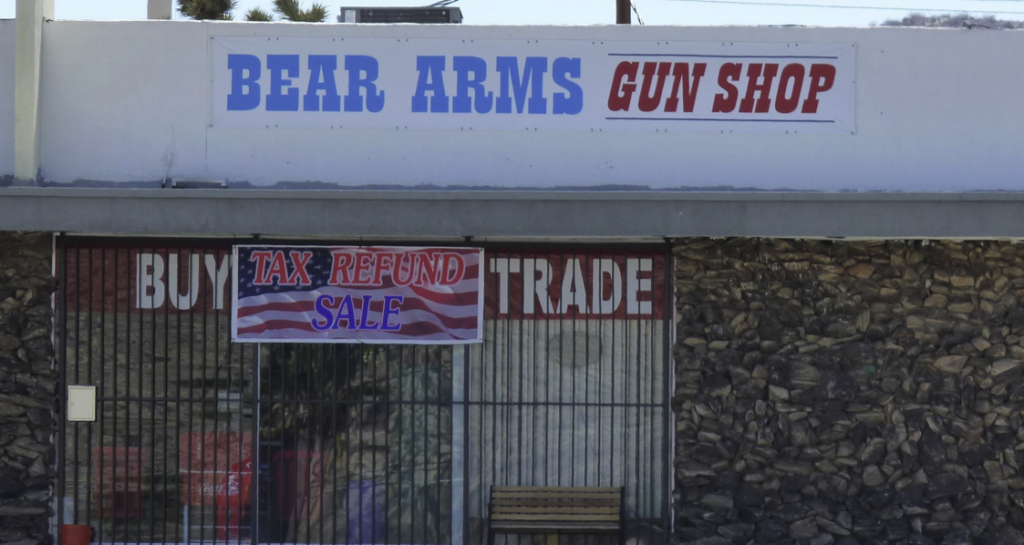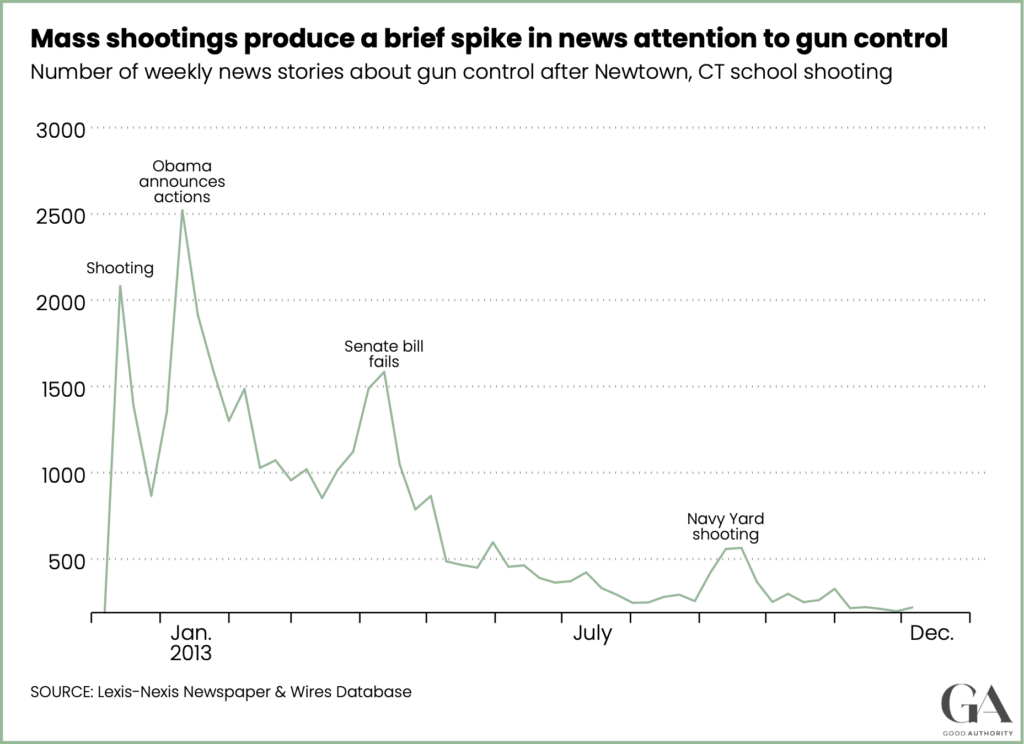
Editors’ note: In this archival post, Good Authority editor Danny Hayes examines the structural barriers to passing federal gun legislation. The piece first ran in the Washington Post on August 25, 2015, soon after two local journalists were shot and killed live on camera by an angry former colleague who later killed himself.
With another shooting capturing the headlines, the debate over gun control will once again make its way back into the news.
Indeed, within hours of the on-air killing of two Roanoke television journalists, Virginia Gov. Terry McAuliffe issued a call for stronger gun regulations. “We’ve got, in America, we’ve got to come together,” McAuliffe said. “There’s too much gun violence in the United States of America.”
Will this be the incident that leads to reforms that gun control advocates have for years pushed for? Will public support for tighter regulations translate into meaningful legislation this time?
Recent history says we should be doubtful. Not only do numerous political interests make it difficult to enact gun control legislation, but without major efforts by politicians themselves, the gun debate is likely to fade quickly from public view.
That’s because of what’s known as the “issue attention cycle.” Mass shootings often generate significant media coverage immediately after they occur. But as time goes by, journalists move on to other stories, leading the public to grow less concerned with gun control.
This is what happened in the wake of the massacre at Sandy Hook Elementary School in December 2012. As the graph below shows, news coverage of gun control in the nation’s newspapers surged in the shooting’s aftermath, but declined quickly through 2013.

It was only executive action by President Obama and the U.S. Senate debate over a background check bill that kept the story in the news. Once politicians in Washington quit fighting, media coverage of the issue mostly disappeared. Not even a national tour by former representative Gabby Giffords or the Navy Yard shooting in Washington managed to hold the media’s attention.
This recent history – a pattern also evident in other mass shootings – suggests that a sustained debate over gun control after today’s shooting in Franklin County, Va., is likely only if McAuliffe or other politicians decide to take up the cause. Otherwise, the media and the public will turn their attention to other issues.



